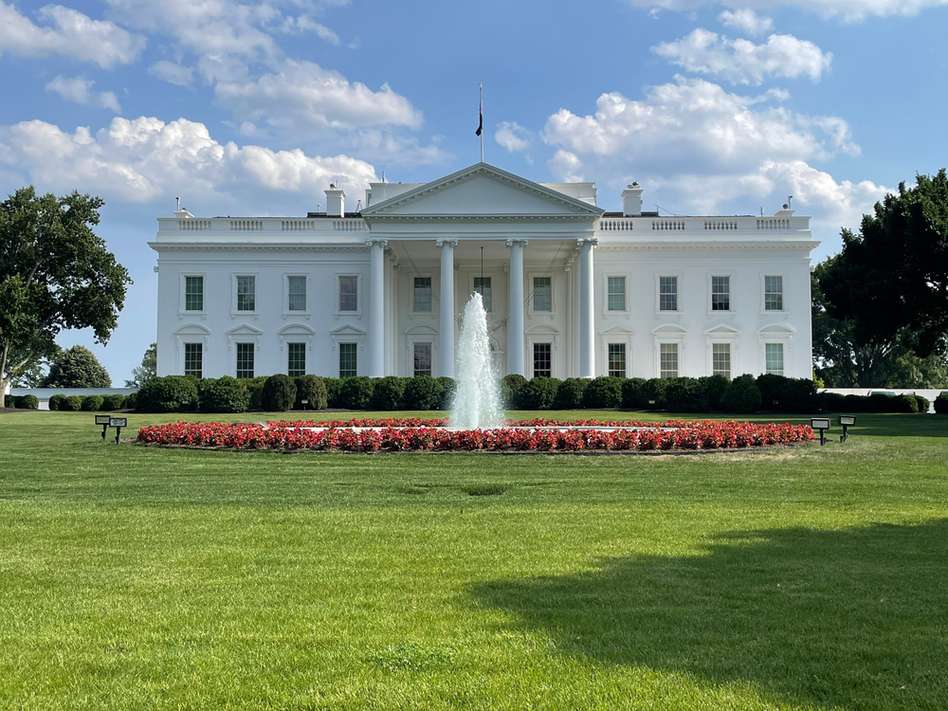US Election 2024: How will it affect the markets?

The office of US President carries huge influence all over the world and, as a result, the way the American electorate votes on 5 November will impact global financial markets. The election was initially a rematch of 2020, but it was upended in July when President Joe Biden ended his campaign and endorsed Vice-President Kamala Harris. The big question now is - will America get its first woman President or a second Donald Trump term?
The bonfire night outcome will determine the future path of the world’s largest economy for the next four years and that prospect inevitably leads to considerable speculation about what victory for each of the principal candidates might mean for the markets and your portfolio.
‘Let’s win this’
The Democratic candidate, Kamala Harris, is the incumbent Vice President of the United States and was Joe Biden’s running mate in the 2020 presidential election campaign. Her policies focus on reducing the cost of living for working families, supporting women’s reproductive rights, increasing taxes on big business and wealthy individuals, fighting climate change and preventing gun violence, among others. Harris’ policy priorities are expected to largely reflect those of the Biden-Harris administration, with a few variances.
‘Make America great again’
Eight years ago, Donald J. Trump was elected the 45th US President riding on one simple slogan: ‘Make America Great Again’. His 2024 pitch is very much a continuation of his ‘America First’ principles, with Trump still vowing to bring jobs and manufacturing back to the US, protect US trade interests and continue his promotion of a hard-line immigration stance. He has pledged to reduce interest rates, complete the wall sealing the US-Mexico border commenced during his presidency, introduce a raft of tax cuts funded in part by higher tariffs on imports, end the war in Ukraine within 24 hours, and defend Americans’ constitutional right to bear arms.
What are the polls telling us?
Statistically speaking, the weight of history is strongly in favour of the incumbent when it comes to US presidential elections – since 1932, almost three-quarters of sitting presidents have been re-elected.
Former President Barack Obama warned that the election race is “tight” at a campaign rally in Pittsburgh on 10 October, with only a few percentage points between the two candidates. Whilst Donald Trump enjoyed a leading position in the polls when running against Joe Biden during the early stages of the campaign, Ms Harris has now taken the lead. As of 10 October, 48.4% of the electorate said they plan to vote for her, compared to 46.0% for Mr Trump. The race is considered to be fairly even based on the latest polling.
Of course, the polls are only a snapshot of public sentiment at a particular moment in time and anything could happen between now and voters hitting the polling stations on 5 November.
Who will control Congress?
Whoever is voted into The White House on 5 November, their ability to act on their election pledges will largely depend on which party controls congress. Comprising the House of Representatives and the Senate, all members of Congress are elected by the general public – and the battleground is as tight as the presidential election itself.
Hinging on just a few Senate races and around two dozen House seats, candidates are feeling the pressure as they vie to win over the electorate. The Republicans are hoping to increase their narrow Senate majority, while the Democrats are looking to defend their majority in the House.
The seven ‘swing’ states
While most American states are in favour of one candidate or another, there are seven that are thought by experts to hold the key to the 2024 presidential election. These seven states – Arizona, Georgia, Michigan, Nevada, North Carolina, Pennsylvania and Wisconsin – could plausibly be won by either Kamala Harris or Donald Trump.
Swing states are so vital because of the way the US conducts elections. Instead of being determined by the public vote, the outcome of the presidential election is actually determined by a body called the Electoral College. Each state has an allocated number of electoral votes. The vast majority of states use a ‘winner takes all’ system, meaning they will assign all their votes to the winning candidate – even if they only won by the narrowest margin. This means that winning a swing state can have a disproportional impact on the end result.
Putting volatility into perspective
Predicting market volatility or attributing it to one cause is challenging as there are a whole array of potential contributory factors.
For presidential elections in the 18-year period from 1984 to 2020, data shows that the Standard & Poor’s 500 (S&P 500) Index's annualised volatility was 16.5% in the 100 days before a presidential election and 15.9% for the 100 days after an election. Interestingly, this recording is lower than the 17.9% annualised volatility for the full 18-year period.
Historic market data
A study of market data from the past 75 years has identified patterns that repeat during election cycles. The analysis highlights a minimal impact on the performance of financial markets in the medium to long term based on potential election outcomes. The data shows that market returns are more dependent on economic and inflation trends rather than election results. In addition, analysis shows the S&P 500 has delivered a 10% annual return on average since 1957, through both Democratic and Republican administrations.
Analysis shows that with the US stock market’s consistent rise, even during two world wars and major financial crises, the more time investors spent in the market, the better their investments performed.
A clear path ahead
A number of variables influence the political climate in an election year, making it challenging to base investment strategy on one factor. While presidential elections generate headlines and direct public policy, it’s important to keep a sense of perspective and maintain your investment strategy. Financial fundamentals including corporate earnings, labour statistics, and Federal Reserve policy decisions including the direction of interest rates, are more influential, particularly over the long term. Successful investing involves having a clear understanding of what you can and can’t control and making sure your emotions don’t come into play, causing you to deviate from your long-term financial plan. Keep politics in perspective as just one of many factors that could impact your investment strategy. Irrespective of who succeeds on 5 November, investment opportunities will continue to exist.
All details are correct at the time of writing (15 October 2024)
It is important to take professional advice before making any decision relating to your personal finances. Information within this document is based on our current understanding and can be subject to change without notice and the accuracy and completeness of the information cannot be guaranteed. It does not provide individual tailored investment advice and is for guidance only. Some rules may vary in different parts of the UK. We cannot assume legal liability for any errors or omissions it might contain. Levels and bases of, and reliefs from taxation are those currently applying or proposed and are subject to change; their value depends on the individual circumstances of the investor. No part of this document may be reproduced in any manner without prior permission.
This material is intended to be for information purposes only and is not intended as an offer or solicitation for the purchase or sale of any financial instrument. Tees is a trading name of Tees Financial Limited which is regulated and authorised by the Financial Conduct Authority. Registered number 211314.
Tees Financial Limited is registered in England and Wales. Registered number 4342506.
Tees are here to help
We have many independent financial advisers who are based in:
- Cambridgeshire: Cambridge
- Essex: Brentwood, Chelmsford, and Saffron Walden
- Hertfordshire: Bishop's Stortford and Royston
But we can help you wherever you are in England and Wales.
Chat to the Author, James Appleby
Managing Director at Tees Wealth, Bishop's Stortford office
Meet James


